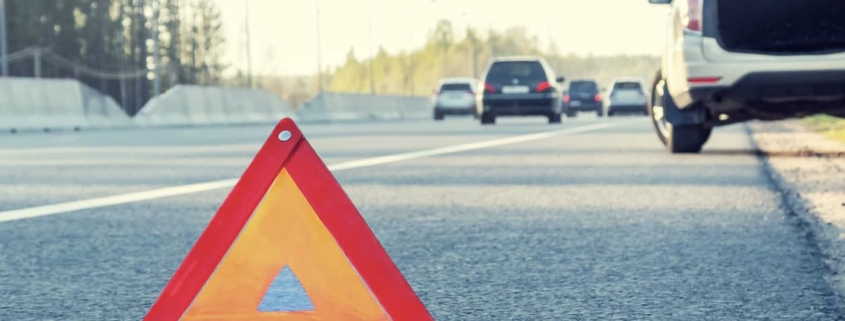It’s nearly impossible to travel about Florida without using one of the state’s many expressways. These high-speed roadways usually have multiple lanes used by locals and tourists alike. It’s more than likely that you’ll have to deal with car trouble on an expressway at some point, and hopefully not at the dreaded crossover between Interstate 4 and State Road 408.
If your vehicle becomes disabled on an expressway, there are a few things you should do.
Move Your Car
Turn on your hazard lights, and, if possible, get your car to the shoulder of the expressway or at least out of traffic.
A stopped car in the middle of an expressway is extremely dangerous. Drivers may not notice that your car isn’t moving until it’s too late to avoid a collision. If your vehicle becomes disabled on an expressway you should keep your hazard or emergency lights on to help alert other motorists to your presence.
In addition to the safety risks posed by staying put in the roadway, Florida law requires drivers to move disabled vehicles so they don’t obstruct the regular flow of traffic.
What if my car isn’t running at all?
If you cannot drive or push your car to the side of the road due to mechanical or safety issues, Florida law requires you to get help and make every reasonable effort to move your vehicle. You can always try waving down fellow drivers and asking for help pushing your vehicle, but your best bet is contacting roadside assistance.
You may have roadside assistance through your auto insurance, car dealership, or a third-party service like AAA or OnStar. If you do not have roadside assistance, contact the Florida Highway Patrol Road Ranger Service Patrol. The Road Ranger Service Patrol is sponsored by State Farm and provides stranded drivers with limited roadside assistance for free. You can contact them by dialing *347.
If all else fails, you can call your local police department or sheriff’s office non-emergency line to request guidance and assistance or reach out to a towing service. Depending on your situation, if you do not know local law enforcement’s non-emergency line, contact 911 and they will patch you through.
Stay Aware of Your Surroundings
Once your vehicle becomes disabled on an expressway, take a few minutes to analyze the flow of traffic and your situation. Is your car visible to others? Did your disabled vehicle cause a backup in traffic that’s now speeding to clear the area?
The side of the road or shoulder of the expressway is as dangerous as it feels. Even Florida drivers who pull their disabled vehicle as far from an expressway as possible, maybe into a nearby patch of grass, aren’t totally safe. In February, a Florida man was driving near Interstate 75 and U.S. 301 when he got a flat tire. He pulled off to the side of the road to change the tire and was fatally hit by a passing car.
Florida does have a law that requires drivers to slow down or change lanes when near stopped vehicles, but that law only applies to emergency vehicles, law enforcement, or similar entities.
What if I can fix my disabled car?
If your vehicle becomes disabled on an expressway, prepare to stay put. Law enforcement says that once your vehicle is off the roadway, you should stay in or near your vehicle until help arrives.
Authorities recommend having an emergency repair kit in your vehicle. Kits vary, but yours may include a help flag and reflectors. Both can help passing motorists realize that your car is disabled and not moving.
If you don’t happen to have a flag on hand, Florida Highway Patrol says you can pop your hood or tie a white cloth to your driver’s side window to alert passersby to your predicament. The aforementioned Road Rangers do patrol the state’s highways in search of stranded motorists, so they may spot you sooner than you expect.
Depending on where your car broke down, you may be near a Florida Highway Patrol alert button, which can be used to contact and request help from the nearest FHP station.
Think your car broke down due to product liability or damage suffered in a recent accident?
If your breakdown was due to someone else’s negligence, it may not be too late to get compensation. Contact the attorneys at Lytal, Reiter, Smith, Ivey & Fronrath today for a free case evaluation.
Locations we serve:




